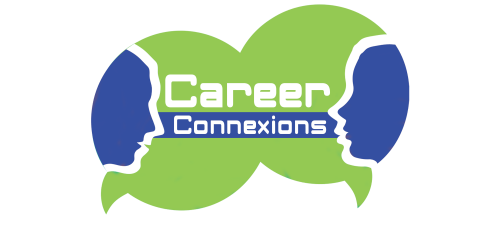Once you have been working for a while, you typically earn a few or more years of experience in your chosen field and have acquired many skills. You have learned the “how to” of your job and likely are a master at it. So, what next? As always, it depends on your job, company, industry, and most importantly – you! It is this last part that will be the focus here.
It will be assumed that you are working for a company that encourages growth and gives you the time and means (think $$$) to gain new experience and skills. If not, growth is still possible, however you will be paying more of the price – often literally! That’s ok, so long as you keep an eye on the bigger picture – your professional growth while keeping your current job, company, etc. in check. This means do not burn any bridges should you eventually move to a work situation where your (new) experience and skills are not taken advantage of or not valued.

A last point is that growth is learning and learning can happen anywhere and at any time. For this blog, career building will be limited to activities such as courses, certifications, and special projects. In the latter case (and within a STEM career), these are great for career growth and yield products such as conference proceedings, peer reviewed papers, maybe even a patent! In short, things that are tangible. Networking will no doubt help your career grow, but it and other similar activities such as volunteering (inside or outside of work) will be treated as a supportive activity as you undertake the more material actions.
The things to focus on in building your career should include:
1. Visioning – This is something actors, athletes, and other professionals do as regular practice. For you, visioning is picturing yourself doing work that interests you, you enjoy, and can be successful at. Keep your mind open and avoid putting up barriers. Doing this helps set the stage for everything you do in building your career. Visioning is more long term and is important to revisit from time to time along your career path. You may discover new “visions” and in doing so can adapt your career actions accordingly.
2.An inventory – Done in the same way as a grocery store or warehouse worker, you take stock of the experience and skills you have and the ones you do not so you can your vision or goals as will be described below. Remember, an inventory and visioning are more like ideas with both evolving through the course of your career path. They are not tightly defined or bound like some of the other things you will need to focus on in building your career. As always it is a good practice to record anything you do whether visioning, inventorying, planning, etc.
3.Setting goals – These are much more immediate and enable you to reach your longer-term vision. An important guideline in establishing goals is to use the SMART approach. In terms of the scope of this blog, a SMART career building goal would be completing an internship, getting certified, etc. Within a STEM career, there are relatively more goals you will need to set and then achieve given the fact that STEM drives and responds to (very fast!) change. In setting your goals, it is worth doing your research to see if, for example, a particular certificate is the best one for your needs. Certain certificates carry more significance or value than others with much of it depending on the organization that is providing it. A good example is setting a goal for getting skilled in project management. Without question, the Project Management Professional (PMP) certification offered by the Project Management Institute is the best.

A bit of a twist on setting goals is when you are targeted by your employer to start a new initiative. This often carries the requirement for training and may take you in a different direction than what you envision and plan for your career. You may not know it, but this may be a great opportunity. The decision makers in your company see potential in you and are willing to spend money to put you in a leadership position. It still is important however, and perhaps more so than at any other time, to revision your career. It may not be something you should pursue if you don’t “see” yourself doing it.
4.Making a plan – This is essential and at minimum includes the “what” and “when” in building your career. Try to find things that you can achieve (i.e., milestones) in the near term such as a week and no more than a month. It is important to reach your goals and feel a sense of accomplishment in doing so. It is also worthwhile to remember that there are many ways you achieve the “what” of building your career. You can volunteer both inside and outside of your current job. You can also attend learning events and others that are more supportive in nature such as conferences which give additional networking. For getting energized, staying positive, etc. you can set goals for the number of new professional connections per month, as an example.

5.Monitoring your progress – Be sure to check how you are doing in meeting your goals. Hopefully things are moving forward. However, it is ok if a goal has not been met by the “when” you established in your plan. You can always modify your plan. What is more important is that you try your best to avoid having to make changes or limit them as much as possible. Also, you want to regularly consult your plan and to not let it go to the wayside. More importantly, you need to remain positive and always be in a growth state of mind. In some cases, you may have a goal, often one that takes some time to achieve, and you need to temporarily put it on hold. In engineering, a Professional Engineer (P.Eng.) designation is one such example.
6.Take a step back – It is easy to get too focused on goals or tasks and lose sight of the bigger picture. By taking a step back you are in effect revisioning your career. Do you see the same future as you did when you did it the first time? Do you have new visions? It is here and really for all parts of building your career that you will benefit from networking, advice, mentoring, opinions, etc. Be sure to have those people and resources with you along your career journey, perhaps even Career Connexions!
